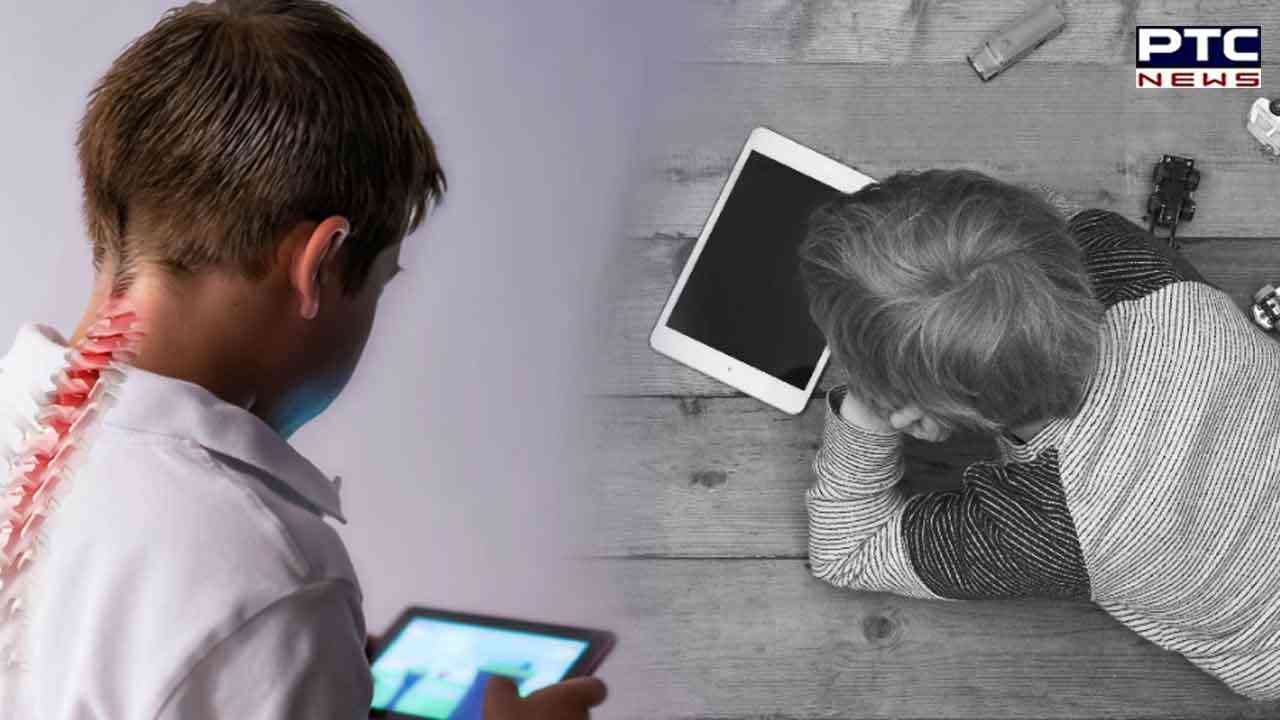

Is screen time really a problem for teens? Researchers disagree
Michigan (US), November 4: While many parents and guardians are concerned that their teenagers are spending too much time on cell phones, video games, and social media, a Michigan State University researcher advises them not to be.
Keith Hampton, a professor in the Department of Media and Information and the Quello Center's director of academic research, claims that he is more concerned about disconnected adolescents than he is about screen time.
"Teens who are disconnected from today's technologies are more isolated from their peers, which can lead to problems," Hampton stated. "Many young people are struggling with their mental health. While adolescents often grapple with self-esteem issues related to body image, peers, family and school, disconnection is a much greater threat than screen time. Social media and video games are deeply integrated into youth culture, and they do more than entertain. They help kids socialise, contribute to identity formation, and provide a channel for social support."
Hampton and his associates explored disconnection. The majority of teenagers have regular access to the internet. These teenagers feel disconnected only when they decide to limit their gadget use or when their parents intervene to limit their online time.
A sizable number of teenagers, primarily in rural America, are alienated for entirely different reasons. They live in houses with extremely poor broadband infrastructure. These teenagers frequently lack internet access outside of school, have very slow access at home, or have sporadic data coverage on smartphones.
"Rural teens are the last remaining natural control group if we want insight into the mental health of adolescents who have no choice but to be disconnected from screens," Hampton added.
Hampton and his team reviewed the self-esteem and social activities of teens with no or limited home internet access to teens who are the heaviest screen users as well as teens whose parents strictly monitor or limit their screen use in a peer-reviewed paper based on a survey of 3,258 rural adolescents. This is what they discovered.
Also Read | Australia offers USD 633,000 reward for Punjabi suspect in murder case
Being a girl was the single most important indicator of low self-esteem. This was not surprising given how difficult adolescence can be for young girls. Poor academic performance was the second most important factor in determining self-esteem in both males and females.
Teens with insufficient internet access at home and those whose parents exercised the most control over their media use had significantly lower self-esteem than average girls or students who performed poorly in school, although only fractionally.
The amount of time teens spent on screens, whether watching videos, playing games, or using social media, had no effect on their self-esteem. Even those who used screens "excessively" reported higher self-esteem than those who were unplugged due to a lack of internet access or strict parental supervision of their online activities.
Why? Because media is so deeply embedded in youth culture.
"Isolation doesn't come from being online, it comes from being disconnected from those sources of entertainment and socialization that permeate teens' lives," Hampton stated.
"For most teens, that's social media, video games and sharing the videos they watch online. It is often how teens get their information, communicate and share."
This is not to say that teenagers do not interact with one another. Teenagers who spend more time on social media and watching videos spend more time socialising. According to Hampton, for every hour spent on social media, there are 21 minutes of socialising with friends. People who used screens "excessively" spent more time with their loved ones.
"Perpetuating the myth that teens who spend more time on their devices spend less time with friends and family and that 'excessive' time online harms most teens' mental health, does more harm than good," Hampton added.
"When parents exert too much control over the time their teens spend on screens, they cut kids off from peers and the social support that protects mental health. While this survey was done prior to the COVID-19 pandemic, this work points to the terrible toll experienced by rural adolescents who were disconnected during the pandemic and the urgent need to address gaps in rural broadband infrastructure."
According to Hampton, this does not imply that social media sites are beneficial. Online bullying and algorithms that direct teenagers to potentially harmful information harm their mental health. Furthermore, some teenagers are more vulnerable to harm than others.
However, this study shows that when parents talk to their children about the dangers of media use, focus on teaching them critical media literacy, and give them more control over their media use, their children report higher self-esteem.
"I advise parents to not focus on how long their teens spend on screens, but to take an interest in what your teens are doing online and spend time together," Hampton said.
Also Read | Canada will not recognise 'Khalistan' referendum: India
- ANI
